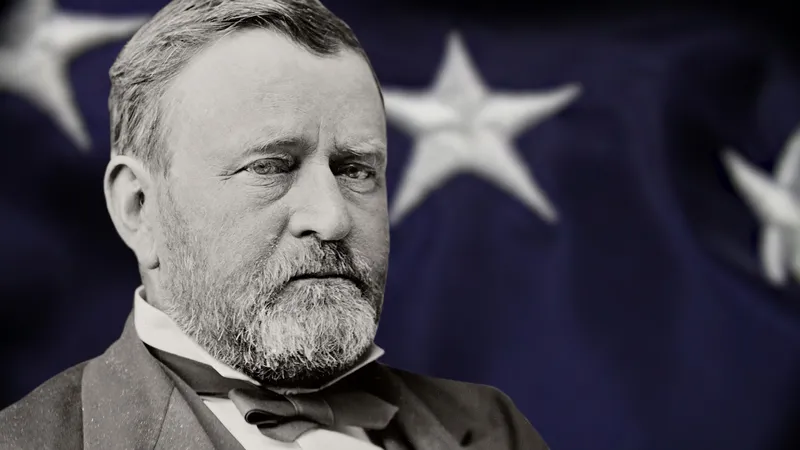Ulysses S. Grant was a remarkable figure in American history. His journey from humble beginnings to becoming the 18th President of the United States is a tale of perseverance, bravery, and leadership. Let’s delve into the life of this influential man and explore the significant moments that shaped his legacy.
Early Life and Education:
Ulysses S. Grant was born on April 27, 1822, in Point Pleasant, Ohio. His birth name was Hiram Ulysses Grant, but a mistake on his application to the United States Military Academy at West Point changed his name to Ulysses Simpson Grant. He decided to keep the new name rather than correct the error.
Grant grew up in a family of modest means. His father, Jesse Grant, was a tanner, and his mother, Hannah Simpson Grant, was a homemaker. Despite their limited financial resources, Grant’s parents instilled in him the values of hard work, honesty, and determination.
At the age of 17, Grant received an appointment to the United States Military Academy at West Point. Despite lacking a strong passion for military life, he embraced the opportunity as a means to obtain a good education and secure a promising future.
Military Career:
After graduating from West Point in 1843, Grant served in the Mexican-American War, where he displayed courage and leadership on the battlefield. Despite his reservations about the war itself, Grant distinguished himself as a capable and strategic military officer.
Following the war, Grant faced numerous challenges in his military career, including periods of struggle with alcohol abuse and personal setbacks. Despite these obstacles, he persevered and continued to excel in his duties.
Civil War Hero:
When the Civil War broke out in 1861, Grant re-entered military service and quickly rose through the ranks due to his tactical brilliance and determination. His first major victory came in February 1862 when he captured Fort Donelson in Tennessee, earning him the nickname “Unconditional Surrender” Grant.
Grant’s most significant military triumph came in 1863 when he led the Union forces to victory in the Battle of Vicksburg, a crucial turning point in the war. The capture of Vicksburg gave the Union control of the Mississippi River and split the Confederacy in two.
Appomattox and End of the Civil War:
In 1864, President Abraham Lincoln appointed Grant as the supreme commander of the Union Army. Grant implemented a strategy of total war, relentlessly pursuing Confederate forces and eventually forcing the surrender of General Robert E. Lee at Appomattox Court House on April 9, 1865.
The surrender at Appomattox effectively ended the Civil War, and Grant’s magnanimous terms of surrender earned him widespread admiration and respect from both sides of the conflict.
Presidency and Reconstruction:
After the war, Grant was hailed as a national hero and became a prominent figure in American politics. In 1868, he was elected as the 18th President of the United States, serving two terms from 1869 to 1877.
Grant’s presidency was marked by efforts to promote civil rights and reconstruct the South in the aftermath of the war. He advocated for the rights of African Americans and worked to protect their newly gained freedoms in the face of resistance from Southern white supremacists.
During his presidency, Grant also sought to improve relations with Native American tribes and pursued policies aimed at reducing corruption in government. Despite his efforts, his administration faced criticism for various scandals and economic downturns during his second term.
Later Years and Legacy:
After leaving office, Grant embarked on a world tour and became a successful author, writing his memoirs to provide for his family after being diagnosed with terminal throat cancer. His memoirs, published shortly before his death in 1885, are considered one of the finest works of literature by a U.S. president.
Ulysses S. Grant’s legacy endures as a testament to his leadership, resilience, and dedication to his country. His role in preserving the Union and advancing the cause of freedom during one of the darkest periods in American history will be remembered for generations to come.
Conclusion:
In conclusion, Ulysses S. Grant’s life story is one of triumph over adversity and the pursuit of excellence in the face of immense challenges. From his humble beginnings in Ohio to his heroic feats on the battlefield and his tenure as President of the United States, Grant’s journey is an inspiration to all who aspire to make a difference in the world.
